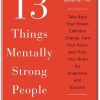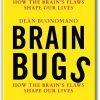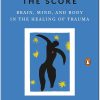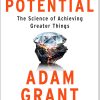
The Confident Mind Book Summary is your essential guide to understanding and applying the powerful mental techniques that elite performers—from Olympic athletes to military leaders—use to build and maintain unwavering confidence. Written by Dr. Nate Zinsser, a renowned performance psychologist at West Point, the book delivers a blueprint for developing an unshakable mindset that fuels success in high-pressure environments.
In this in-depth summary, we’ll explore the core concepts of The Confident Mind Book Summary, breaking down the battle-tested methods and providing practical solutions to implement them in your own life. Whether you’re an athlete, entrepreneur, student, or creative professional, Zinsser’s work offers a transformative approach to mastering self-belief.
Book Summary Contents
- 0.1 1. Confidence Is a Skill, Not a Trait
- 0.2 2. Replace Negative Self-Talk with Constructive Language
- 0.3 3. Curate Your Memory Bank for Success
- 0.4 4. Control the Controllables
- 0.5 5. Build a Personal Confidence Script
- 0.6 6. Confidence Thrives in Repetition and Routine
- 0.7 7. Perform in the Present, Not the Past or Future
- 0.8 Bonus: Apply the Confident Mind in Real Life Scenarios
- 0.9 FAQ – The Confident Mind Book Summary
- 0.10 Key Statistics
- 1 About the Author: Nate Zinsser
- 2
- 3 Attachments & References
1. Confidence Is a Skill, Not a Trait
Dr. Zinsser opens with a foundational idea: confidence is not something you’re born with—it’s something you build. Just like physical strength, confidence can be trained through repetition, intention, and consistency.
Solution: Begin treating your confidence like a muscle. Develop it with daily exercises such as visualization, affirmations, and mental rehearsal. Commit to the mindset that confidence is earned and not inherited.
Idea: Create a “Confidence Journal” where you write down your daily wins and personal achievements. Reviewing these regularly reinforces a positive self-image.
2. Replace Negative Self-Talk with Constructive Language
Many people sabotage their potential with internal criticism. Zinsser emphasizes that your inner dialogue shapes your performance.
Suggestion: Eliminate phrases like “I can’t,” “I’m not good at this,” or “I always mess this up.” Replace them with statements that focus on effort and growth: “I’m learning,” “I can improve,” “I’ve succeeded before.”
Example: Instead of saying, “I always get nervous before presentations,” try, “I’m prepared and I’ve done this well in the past.”
3. Curate Your Memory Bank for Success
According to The Confident Mind Book Summary, your brain stores thousands of performance memories. Zinsser argues that you should selectively remember successful experiences rather than failures.
Technique: Create a highlight reel of your proudest achievements and revisit it regularly. This intentional recall helps wire your brain for success and confidence.
Tip: Before any high-stakes performance, spend a few minutes recalling specific moments when you excelled. Let those emotions drive your confidence.
4. Control the Controllables
Zinsser reminds readers that true confidence comes from focusing on what you can control—your effort, attitude, preparation, and response.
Solution: Identify what’s within your control in every situation. Let go of external factors like outcomes, opinions, or random variables.
Application: If you’re an athlete, control your nutrition, training, and mindset. If you’re a speaker, control your preparation, posture, and breathing.
5. Build a Personal Confidence Script
One of the most practical tools in The Confident Mind Book Summary is the concept of a Confidence Script. This is a written narrative you read daily that reinforces your strengths, accomplishments, and capabilities.
Structure:
- Past Wins: Acknowledge your past victories
- Present Strengths: Highlight what you’re doing well now
- Future Successes: Project your desired outcomes with conviction
Suggestion: Read your script aloud every morning and night. It’s a powerful way to program your mind for consistent belief.
6. Confidence Thrives in Repetition and Routine
Zinsser stresses that consistency is key. Confidence isn’t built in a day—it’s built daily.
Routine Ideas:
- Start your day with positive visualization
- End your day with gratitude journaling
- Practice performance rehearsals before key events
Statistic: According to research, people who regularly visualize success are 35% more likely to achieve their goals than those who don’t.
Tip: Attach your mental exercises to daily habits, like brushing your teeth or commuting, to build routine effortlessly.
7. Perform in the Present, Not the Past or Future
The Confident Mind Book Summary teaches that elite performers stay grounded in the moment. Worrying about past failures or future outcomes disrupts performance.
Mindfulness Tip: Practice grounding techniques like deep breathing or body scans to stay in the now. When your mind drifts, bring it back to your breath or current action.
Solution: Focus on executing one small step at a time. If you’re giving a speech, focus on your next sentence—not the whole presentation.
Bonus: Apply the Confident Mind in Real Life Scenarios
Here’s how to translate these concepts into practical settings:
- Athletes: Use visualization, daily scripts, and highlight reels before competition.
- Professionals: Start meetings with power affirmations and mental rehearsals.
- Students: Review past academic wins before exams and limit negative self-talk.
FAQ – The Confident Mind Book Summary
Q1: Who is this book for? A: Anyone who wants to improve their confidence in sports, business, academics, or life in general. It’s especially valuable for high-performers and those under pressure.
Q2: Does this book offer practical exercises? A: Yes! Dr. Zinsser provides scripts, journaling ideas, visualization techniques, and mental drills.
Q3: Can confidence really be trained? A: Absolutely. Just like physical skills, confidence grows through repetition and intentional practice.
Q4: How fast can I see results? A: Many people report feeling more focused and confident within a few weeks of consistent practice.
Key Statistics
- 92% of elite athletes use mental training techniques like those in The Confident Mind.
- Confidence is cited as a top 3 factor in performance by over 70% of executives and entrepreneurs.
- People with high self-confidence are 33% more productive according to Harvard research.
About the Author: Nate Zinsser
Dr. Nate Zinsser is a leading expert in performance psychology, renowned for his work in cultivating mental toughness and confidence among elite performers. Since 1992, he has directed the Performance Psychology Program at the United States Military Academy at West Point, where he has conducted over 17,000 individual training sessions and 700 team sessions for cadets aiming to excel in athletic, academic, and military arenas .
Holding a Ph.D. in sport psychology from the University of Virginia, Dr. Zinsser has also taught at institutions such as William Paterson College and East Stroudsburg University
Conclusion
The Confident Mind Book Summary reveals that confidence is a trainable skill, not a genetic gift. By managing your self-talk, curating your memories, and following proven routines, you can unlock a mindset that supports unshakable performance in any area of life.
Apply these science-backed strategies from Dr. Nate Zinsser’s book, and start your journey toward elite confidence today.
Read it. Practice it. Live it. Let your confident mind lead the way.
Attachments & References
- Get Your Copy Of The Book: The Confident Mind: A Battle-Tested Guide to Unshakable Performance by Dr. Nate Zinsser
- Explore Similar Books
- Amazon’s book page
- Goodreaders’s book page
- Author’s image source: adammendler.com
- Book Cover: Amazon.com
- Quote sources: Goodreads



































